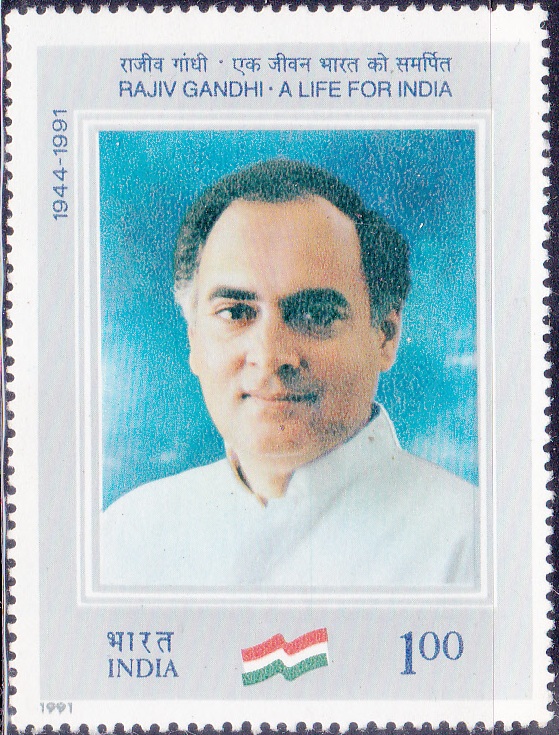
Rajiv Gandhi
A commemorative postage stamp on the 47th Birth Anniversary of Rajiv Gandhi – A Life for India, 6th Prime Minister of India (1984-89) : 
Issued by India
Issued on Aug 20, 1991
Description of Design : The stamp is based on the design furnished by Shri Romesh Chopra and Appeal Advertising and Marketing Consultants, New Delhi. The First Day Cover and the Cancellation have been designed by Shri Suresh Kumar.
Type : Stamp, Mint Condition
Colour : Multi Colour
Denomination : 100 Paise
Overall size : 6.10 x 4.60 cms.
Printing size : 5.796 x 4.272 cms.
Perforation : 13 x 13
Paper : Imported Un W/M adhesive photogravure coated Stamp Paper
Number Printed : 10,00,000
Number per issue sheet : 15
Printing Process : Photogravure
Printed : India Security Press
Name : Rajiv Ratna Gandhi
Born on Aug 20, 1944 at Bombay, Bombay Presidency, British India [now Mumbai, Maharashtra, India]
Died on May 21, 1991 at Sriperumbudur, Tamil Nadu, India
About :
- Rajiv Gandhi was born in Bombay on 20th August 1944 into a distinguished family of freedom fighters and patriots. His great grandfather Motilal Nehru was president of the Indian National Congress, his grandfather Jawaharlal Nehru became free India’s first Prime Minister from 1947 till his death in 1964. His mother Indira Gandhi served as Prime Minister of India from 1966 to 1977 and again from 1980 to 1984. Rajiv Gandhi’s father Feroze Gandhi was an eminent parliamentarian.
- Rajiv Gandhi was educated at the Doon School, Dehra Dun and at the University of Cambridge in the United Kingdom. While at the University, he met Sonia Maino. They were married in 1968 and have two children, Rahul and Priyanka.
- Rajiv Gandhi was a pilot with the Indian Airlines till family circumstances compelled him to join politics. He was elected a Member of Parliament from Amethi in 1981 and re-elected at all subsequent elections. He became the General Secretary of the Congress (I) in 1983. After the dastardly assassination of his mother on 31st October 1984, he was sworn in as the Prime Minister of India and went on to win the elections in December 1984 with the most massive mandate ever received by any party in the history of independent India.
- Rajiv Gandhi assumed the office of prime minister at a time of grave internal crisis, and many believed the unity of the country itself was threatened. Within months of assuming office he signed an accord with Sant Longowal which gave a new hope of harmony in Punjab. The Assam Accord brought that critically strategic North Eastern State back into the national mainstream. In the years that followed, he ended insurgency in Mizoram, Tripura and the Darjeeling Hills, forging links of emotional integration between these far-flung parts of the country and the nation as a whole. Rajiv Gandhi bequeathed to his successors a strong, stable and united India.
- History will remember his prime ministership as a period of dynamic change and imaginative innovation. While firmly adhering to the basic principles and ideology of Mahatma Gandhi and Jawaharlal Nehru, Rajiv Gandhi initiated several steps for the modernisation of the Indian economy, the application of science and technology for the service of the poor (including technology missions directed to areas of the greatest concern for poverty eradication), numerous improvements in anti-poverty programmes, the Jawahar and Nehru Rozgar Yojanas, and the strengthening of democracy at the grassroots through the devolution of power, authority and responsibility to institutions of local government – Panchayati Raj and Nagarpalikas. In the field of foreign policy, he acquired immense stature in the comity of nations as a forceful advocate of nonalignment, non-violence and disarmament, as a crusader against racial discrimination, as an environmentalist of eminence, and as a staunch defender of the economic rights of the developing countries.
- For November 1989, he adorned the opposition benches in Parliament with distinction till his life was cut brutally short by a bomb blast at Sriperumbudur, Tamil Nadu at 10:20 p.m. on 21st May 1991.
- He will be remembered as a man of immense personal courage who never let the fear of death stand in the way of taking the right decision; a man of profound compassion whose heart reached out to the oppressed, the deprived and the unfortunate the world over; a man who, free of all prejudices, identified himself with all humanity; a deeply patriotic Indian who gloried in the country’s tradition of unity in diversity; a statesman of vision determined to restore his beloved country to its traditional place in the vanguard of human civilization.


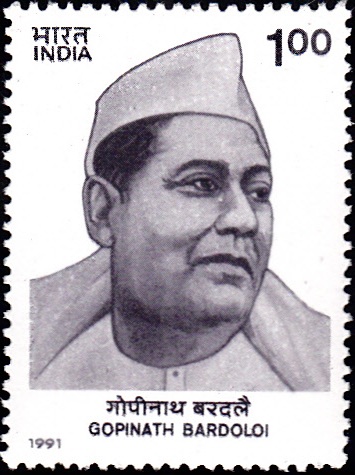
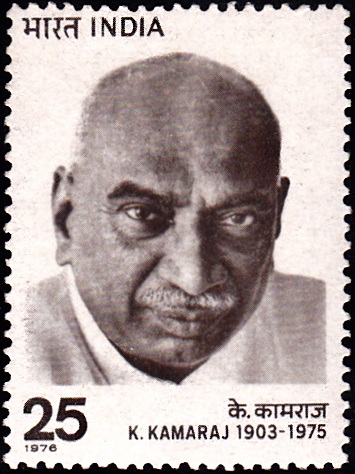
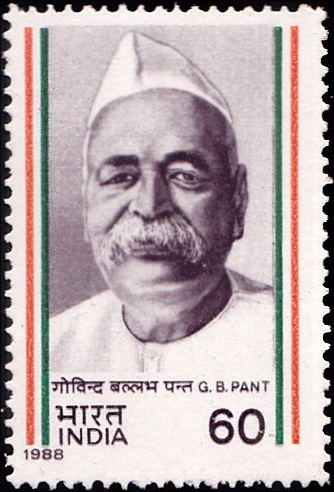
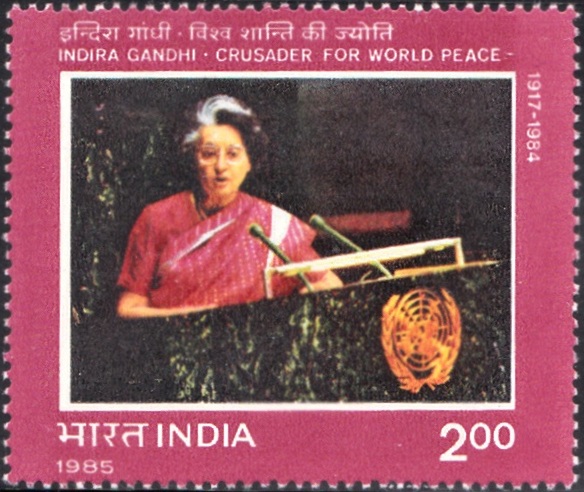
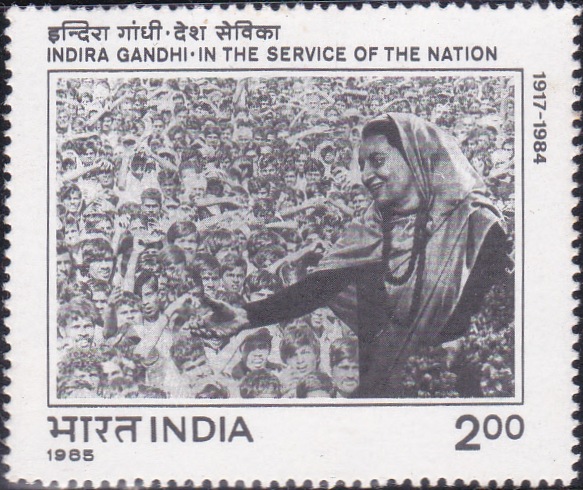
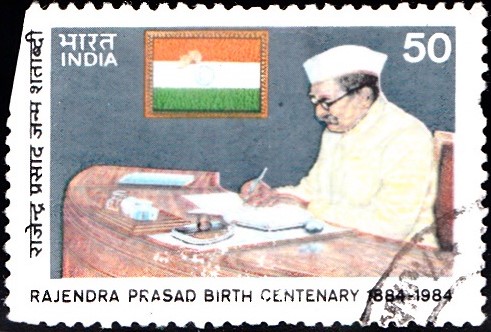
[…] Description of Designs : The se-tenant set prepared by India Security Press, Nashik Road, based on a design by C. R. Pakrashi, presents a composite picture, depicting the portraits of A. O. Hume & 60 Congress Presidents starting from W. C. Bonnerjee, to the present President, Shri Rajiv Gandhi. […]
[…] under Gandhiji‘s directions in 1947. Smt. Indira Gandhi and Feroze Gandhi had two sons Rajiv and Sanjay. Sanjay died prematurely in an air-crash at […]
[…] Prime Minister Shri Rajiv Gandhi paid a tribute to him for his patriotic, reformist and literary contributions and the Government of […]
[…] started on 19th November 1985, late Mrs. Indira Gandhi‘s birth anniversary. Prime Minister Rajiv Gandhi pledged this programme as a “living memorial” to her concern for the very […]
[…] of A.O. Hume & 60 Congress Presidents starting from W.C. Bonnerjee, to the present President, Shri Rajiv Gandhi. The First Day Cover has been designed by C.R. Pakrashi. The cancellation has been designed by Nenu […]
[…] Singh joined as Union Agriculture and Food Minister under the leadership of the then Prime Minister Shri Rajiv Gandhi. Rao Birender Singh resigned on 25th September 1985 from the Cabinet as he was against Rajiv […]